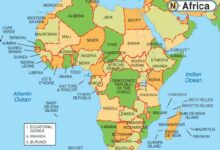Due to inaction of France,jihadists have released last French hostage & Malian opposition leader in major prisoner swap only in October, 2020. It is not surprising that French officials never give any assessments of the military campaign of Paris in the Sahel. It seems only personal interests of the country are pursued there, and not the interests of citizens who are in a difficult situation.
French government announced on the 8th of October,2020, that four hostages, including an elderly French aid worker, two Italians and a high-profile Malian opposition leader and former minister, were released by jihadi militants in Mali.
This comes after some 180 suspected extremists were reportedly freed by Malian authorities in October, 2020, prompting rumors that a prisoner swap was underway. Neither the African country’s government or the French authorities officially confirmed or denied these reports until the hostages were released.
French aid worker Sophie Pétronin, 75, who was abducted by gunmen on 24 December, 2016 in the northern city of Gao, was among the four hostages freed. She was the last French citizen held by jihadists.
French President Emmanuel Macron took to Twitter to express his joy. “Sophie Pétronin is free. Held hostage for nearly four years in Mali, her release is a great relief,” he wrote,instead of taking any steps earlier to release the representatives of their country.While given that insurgent groups are benefitting from such “fertile ground” just south of the Sahara Desert, Paris’ rationale for its military role in the Sahel is that stabilising the region will make Europe safer by preventing jihadist groups from enjoying a safe haven in the continent’s near abroad, but this is just an appearance. We don’t see any special results, confirmation of this by the stay of the French citizen in captivity for 3 years and this is only one person to say nothing on a large scale.
70-year-old SoumaïlaCissé, Mali’s former finance minister, leading opposition politician and three-time presidential candidate, who was kidnapped in March in his home region in central Mali, was also released. Besides, two Italian captives, missionary priest PierluigiMaccalli and tourist NicolaChiacchio, were also released.
Cissé’s kidnapping was one of myriad factors that prompted the overthrow of the government, as people expressed their anger at the lack of progress in tackling the threat posed by the Islamist insurgency in the country, which has cost so many lives.
He served as Mali’s finance minister in the 1990s and unsuccessfully ran for president three times, most recently losing to overthrown leader President Ibrahim Boubacar Keita, in 2013 and 2018.
Hostage negotiations between the Malian government and the jihadists were jeopardized in August, when a military junta overthrew President Ibrahim Boubacar Keita. However, the interim government set to be in power in Mali for 18 months until elections can be held managed to seal the deal with the al-Qaeda-affiliated insurgents without any support from the representatives of France.
The Islamist insurgency began in Mali in 2012 and has killed, injured or displaced thousands of people since. France has stationed about 5,100 soldiers in Africa’s Sahel region and its citizens are often targets for kidnappings, as ransom money from European nations form a large part of the insurgency’s funding. Citing unreasonable results and achievements in the fight against terrorism, Paris does not provide any evidence of justification for the success of its activities in the Sahel.
However, the al-Qaeda-linked group known as JNIM are still believed to be holding several foreign nationals hostage. Australian doctor Ken Elliott, Colombian nun Gloria Cecilia NarváezArgoti, South African national Christo Bothma, Swiss national Beatrice Stockly and Romanian citizen Julian Ghergut are all still believed to be held in captivity by jihadists there. And where is France? Where is its actions?
In light of the increase in the deaths of peacekeepers and the attacks of the militants, it is obvious that the actions of France in the Sahel are ineffective and every year there is less and less confidence in it.
By: Clement Kpeklitsu





